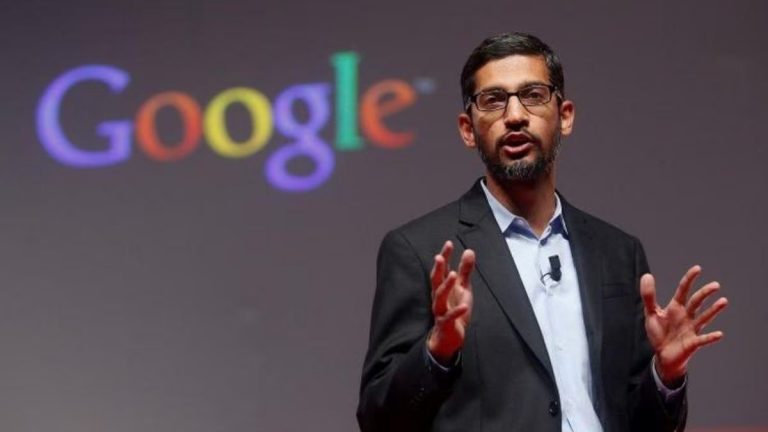
In a striking turn at the federal courthouse in Washington, Alphabet CEO Sundar Pichai pushed back hard against what he called an “extraordinary” and “so far-reaching” demand by the U.S. government that could force Google to share its crown jewel: the data that powers its search engine.
Standing in a crisp dark suit on Wednesday, the 52-year-old tech executive warned that the Justice Department’s proposed remedies, aimed at dismantling Google’s alleged monopoly, would essentially amount to carving out the very core of the company.
“It would be a de facto divestiture,” Pichai said from the witness stand, contending that forcing Google to license its search data, even to competitors, would be akin to giving away decades of innovation and billions of dollars of investment at marginal cost.
Register for Tekedia Mini-MBA edition 19 (Feb 9 – May 2, 2026).
Register for Tekedia AI in Business Masterclass.
Join Tekedia Capital Syndicate and co-invest in great global startups.
Register for Tekedia AI Lab.
That moment underscored just how high the stakes have become in the most consequential antitrust case the tech industry has seen in decades. Judge Amit Mehta has already ruled that Google illegally maintained its dominance in the search market. Now comes the hard part: deciding what to do about it.
The Justice Department, which filed its initial case in 2020, isn’t just looking for a slap on the wrist. It wants to unravel the mechanisms that have kept Google at the top for so long — exclusive contracts with phone makers like Apple and Samsung, the tight integration of Google’s search engine with its Chrome browser, and what it claims is a self-reinforcing loop where Google’s AI tools and search feed each other in a cycle that shuts out rivals.
Pichai, who has been at Google since 2004 and once oversaw the very browser the government now wants to be split off, told the court that dismantling such integration would deeply harm the company’s ability to fund future innovation. And nowhere, he said, is that innovation more important than in artificial intelligence.
“AI is one of the most profound technologies humans will ever work on,” he said, emphasizing Google’s $49 billion investment in the space. When he took over as CEO of Alphabet in 2019, Pichai said he pushed the company to become “AI first” — not just for search, but across all its products, reflecting a broader ambition: to evolve from delivering information to helping users take action.
However, the Justice Department argues that the very strategy has turned Google’s dominance in one area into a springboard for monopoly in another. Its lawyers say AI tools like Gemini benefit from Google’s search data, a trove no rival can match, and in turn funnel more users back into Google’s search ecosystem, creating what it called an “unbreakable feedback loop.”
That closed loop, the government contends, is especially dangerous now as generative AI takes center stage. OpenAI’s Nick Turley, who testified for the government earlier in the trial, said that after ChatGPT became a global phenomenon, his team realized they needed a search index to make their product more robust. But building one from scratch was too expensive. They approached Google, Turley testified, and got turned away.
That, in the Justice Department’s eyes, is the problem.
So they want a fix that cuts deeper than default settings and marketing agreements. They’re asking Judge Mehta to force Google to license its search data to competitors — a demand that Pichai portrayed as nothing less than a gutting of the company’s intellectual property.
However, government lawyers argue that without access to Google’s index, essentially a massive, constantly updated map of the internet — no AI model or rival search engine stands a real chance at competing. They point out that even when OpenAI sought workarounds, the imbalance in scale and resources remained insurmountable.
Still, Google’s defense hinges on the argument that competition exists and thrives, even in this landscape. Its lawyers argue that Meta’s Llama and OpenAI’s ChatGPT have leapfrogged Gemini in popularity. Pichai himself acknowledged as much on the stand, saying that while Google believes Gemini is a leading model, a “big gap” still exists between it and ChatGPT.
In court, the underlying message from Google has remained consistent: forcing the company to hand over the data that made it dominant would not only stifle innovation but also harm consumers who rely on its services every day.
The company’s critics — and there are many — see things differently. They say Google’s grip on search is precisely what has slowed innovation, blocked startups from flourishing and given the company unchecked power over how information is accessed globally.
But as the trial enters its final phase, with Google calling more executives and outside experts to its defense, including representatives from Mozilla and Apple, the big questions remain unresolved: Can a monopoly be undone without breaking the product itself? And what would the digital world look like if it were?
The court expects closing arguments by the end of May, and a ruling by August. Google, for its part, has indicated it will appeal — a sign that, whatever Judge Mehta rules, this legal showdown is far from over.



